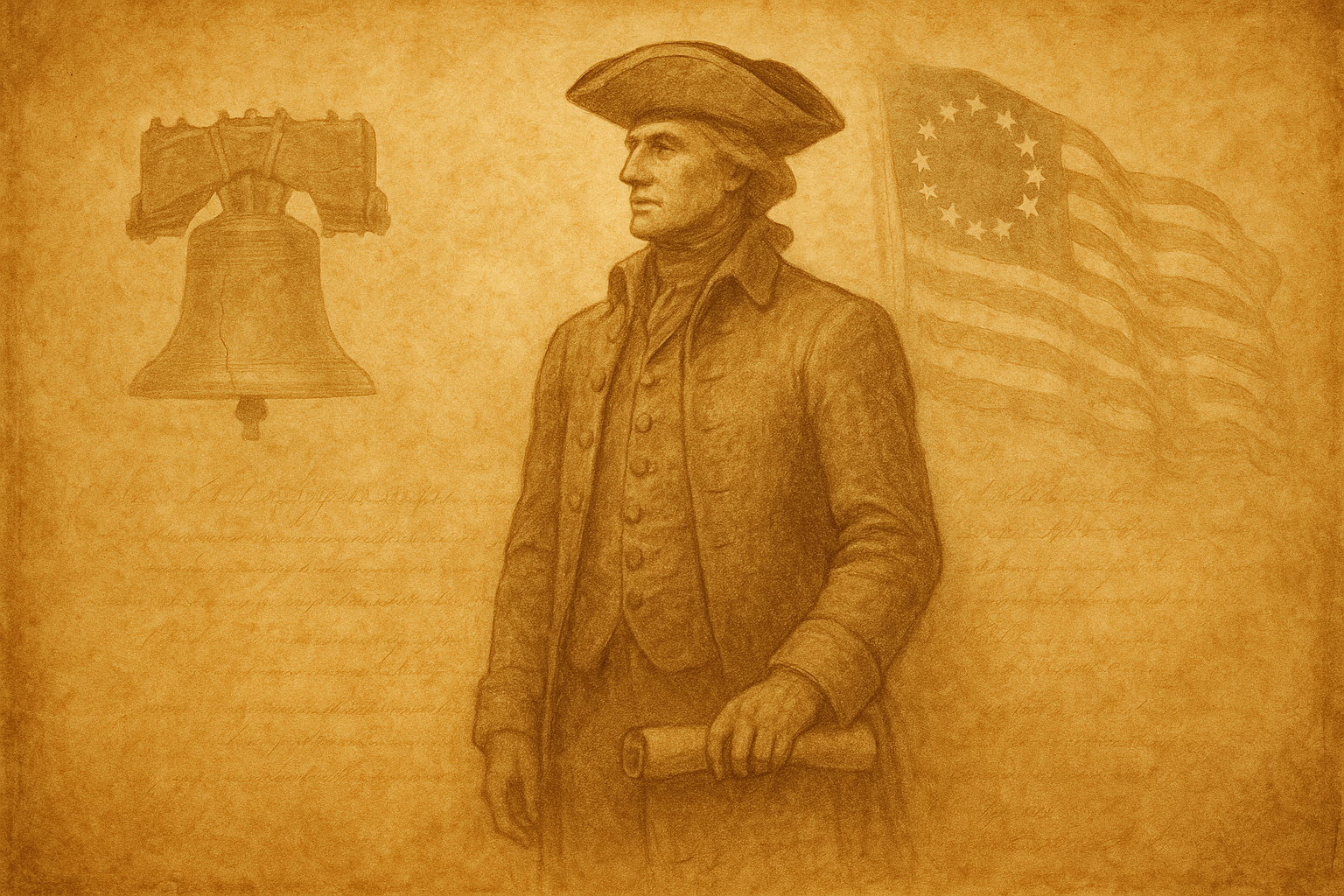🔥 1776: The Turning Point of a Nation
When we think of 1776, most Americans picture a bold signature on parchment, colonial rebels in tri-corner hats, and fireworks on the Fourth of July.
But the truth of 1776 runs deeper. It was the year that transformed discontent into declaration, theory into action, and loyal subjects into citizens of a new nation.
But the truth of 1776 runs deeper. It was the year that transformed discontent into declaration, theory into action, and loyal subjects into citizens of a new nation.
If you’ve ever asked yourself, "What happened in 1776—and why does it matter today?"—this post is for you.
📜 The Declaration of Independence: A Line in the Sand
On July 2, 1776, the Continental Congress voted for independence from Britain.
Two days later, on July 4, they officially adopted the final text of the Declaration of Independence, announcing that the 13 colonies would no longer be subject to British rule.
Two days later, on July 4, they officially adopted the final text of the Declaration of Independence, announcing that the 13 colonies would no longer be subject to British rule.
This was an act that would become the symbolic birth of the United States.
And it was much deeper than just a political document. It had to do with the intrinsic value of humankind and our standards of morality under God.
It claimed that:
- All men are created equal
- Rights come from God, not government
- Governments exist to protect life, liberty, and the pursuit of happiness
- If a government becomes destructive and tyrannical, the people have the right to change it
The men who signed that document knew that what they were about to do could very well cost them everything.
Because by signing the Declaration, they were declaring treason against the most powerful empire at the time– against King George III and the British Crown.
Because by signing the Declaration, they were declaring treason against the most powerful empire at the time– against King George III and the British Crown.
Why It Still Matters Today
The Declaration laid the foundation for American identity. It codified values that many Americans still hold dear: individual liberty, inalienable rights under God, self-governance, and moral duty.
For those of us who cherish traditional American values, it remains a living testimony of what this nation was built to defend.
Today, these truths are not just historical—they are inherited. As Americans, we stand on the shoulders of those who risked all for freedom.
That is our heritage. And we must remember it.
That is our heritage. And we must remember it.
⚔️ What Started the American Revolution? A Short Answer.
Oppression met resistance—and resistance became revolution.
But let’s break it down:
Key Causes of the American Revolution:
-
Taxation without representation — Acts like the Stamp Act (1765) and Tea Act (1773) forced colonists to pay taxes imposed by a Parliament in which they had no voice.
-
British military occupation — A growing number of British troops were stationed in the colonies, fueling tension and resentment.
-
Suppression of colonial self-rule — Royal governors increasingly overruled locally elected assemblies, eroding colonial autonomy.
- Escalating conflict and violence — Incidents like the Boston Massacre (1770) and the Boston Tea Party (1773) intensified public outrage and galvanized resistance.
🔥 The Final Spark: Lexington and Concord
In April 1775, British troops attempted to seize colonial weapons in Lexington and Concord, Massachusetts. Colonial militias stood their ground—and the first shots of the Revolutionary War were fired. After that, the question was no longer if there would be a revolution, but how far it would go.
🗽 What Was the Goal of the American Revolution?
The primary goal of the colonists was to secure independence from the British rule that was overtaking the colonies, and to establish a nation that protected and guaranteed individual rights and self-governance.
These rights and values they fought for included:
- Representative government
- Private property
- Religious freedom
- Personal liberty
By the time Patrick Henry gave his famous speech at the Second Virginia Convention on March 23rd, 1775, the delegates could no longer deny the truth: the time for submission and conciliation had passed.
It was no longer a question of loyalty—it was a question of liberty.
It was no longer a question of loyalty—it was a question of liberty.
“And what have we to oppose to them? Shall we try argument? Sir, we have been trying that for the last ten years.”
Henry made it painfully clear: they had exhausted every peaceful avenue. Already a decade of reasoning had yielded nothing.
“Shall we resort to entreaty and humble supplication? What terms shall we find which have not been already exhausted?”
He implored them not to cling to the illusion of hope—that deceptive notion that the British Crown might yet heed their pleas. Their efforts had been met not with understanding, but with contempt and increasing violence.
“Our petitions have been slighted; our remonstrances have produced additional violence and insult; our supplications have been disregarded; and we have been spurned, with contempt, from the foot of the throne!”
To Henry, the answer was now undeniable. They stood at the end of a long, bitter road.
If they still cherished freedom—if they intended to keep the sacred rights they had long fought for—there was only one course left.
If they still cherished freedom—if they intended to keep the sacred rights they had long fought for—there was only one course left.
“There is no longer any room for hope. If we wish to be free– if we mean to preserve inviolate those inestimable privileges for which we have been so long contending–if we mean not basely to abandon the noble struggle in which we have been so long engaged, and which we have pledged ourselves never to abandon until the glorious object of our contest shall be obtained—we must fight!”
So the mission shifted—from seeking reform to demanding independence.
🧭 What This Means for Americans
Stand for truth, even when it costs you.
Resist tyranny, even when it’s dressed in comfort.
Live free—or die trying.
Resist tyranny, even when it’s dressed in comfort.
Live free—or die trying.
These are the values our founders lived by—and they still echo in every American heart that loves liberty and the standards our country was founded on.
For faith, family, freedom, and righteousness under God.
For faith, family, freedom, and righteousness under God.
🕯️ Candle Feature: Resist Like It’s 1776
“Is life so dear, or peace so sweet, as to be purchased at the price of chains and slavery?”
—Patrick Henry, 1775
Our Resist Like It’s 1776 candle embodies the bold defiance of those early patriots:
- Scent Story: Midnight riders. Ink-stained fingers. Battlefield resolve.
- Scent Notes: Smoldering cedar embers, charred leather saddles, sun-warmed sandalwood, and amber musk.
Light it to remember that freedom wasn’t won by comfort—it was won by courage. And we’re the ones who must carry on that legacy.


